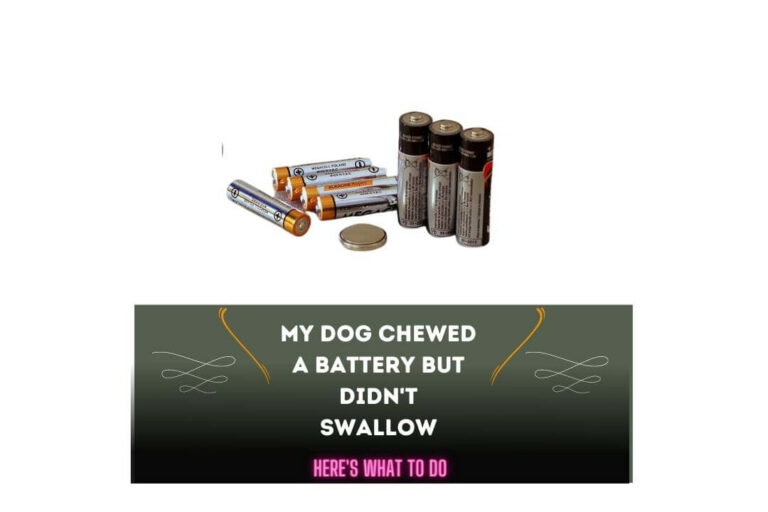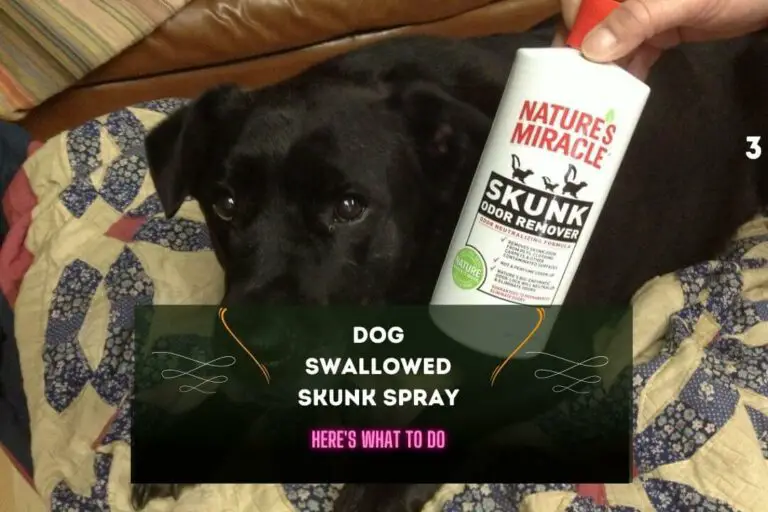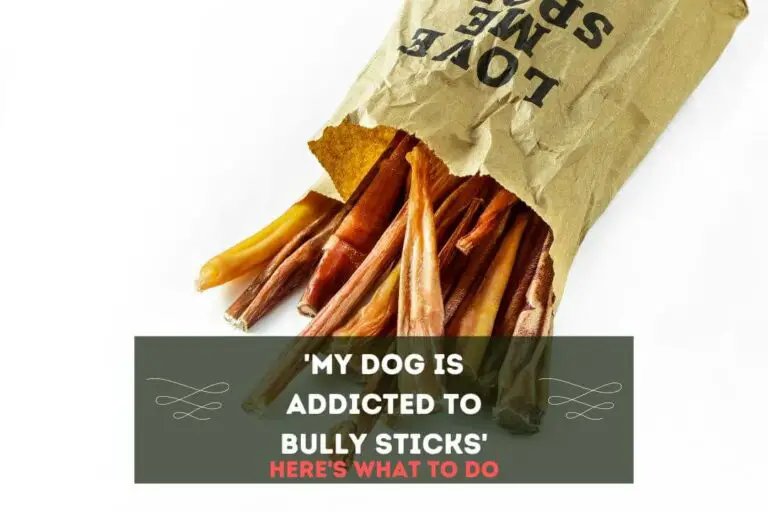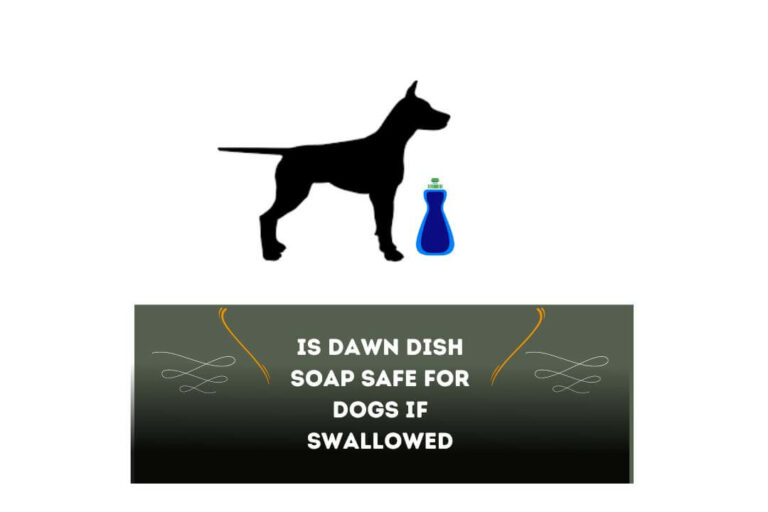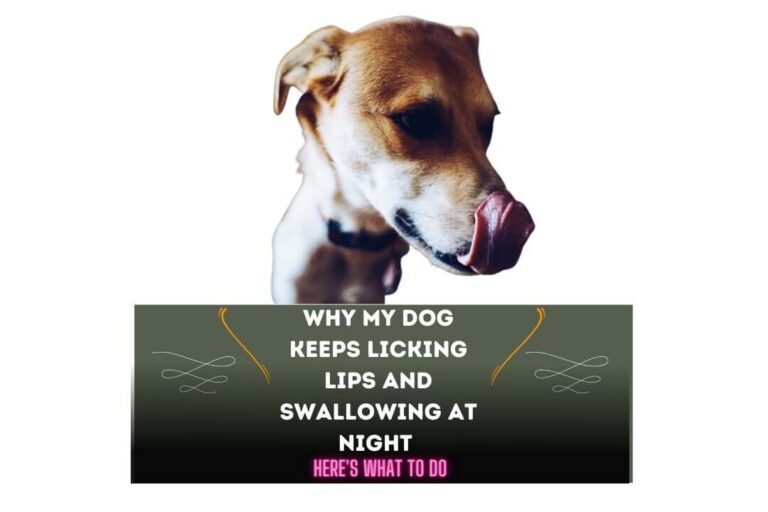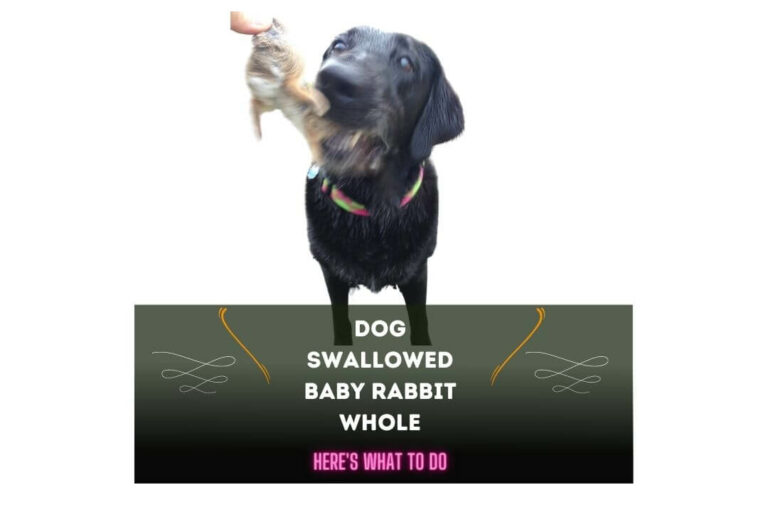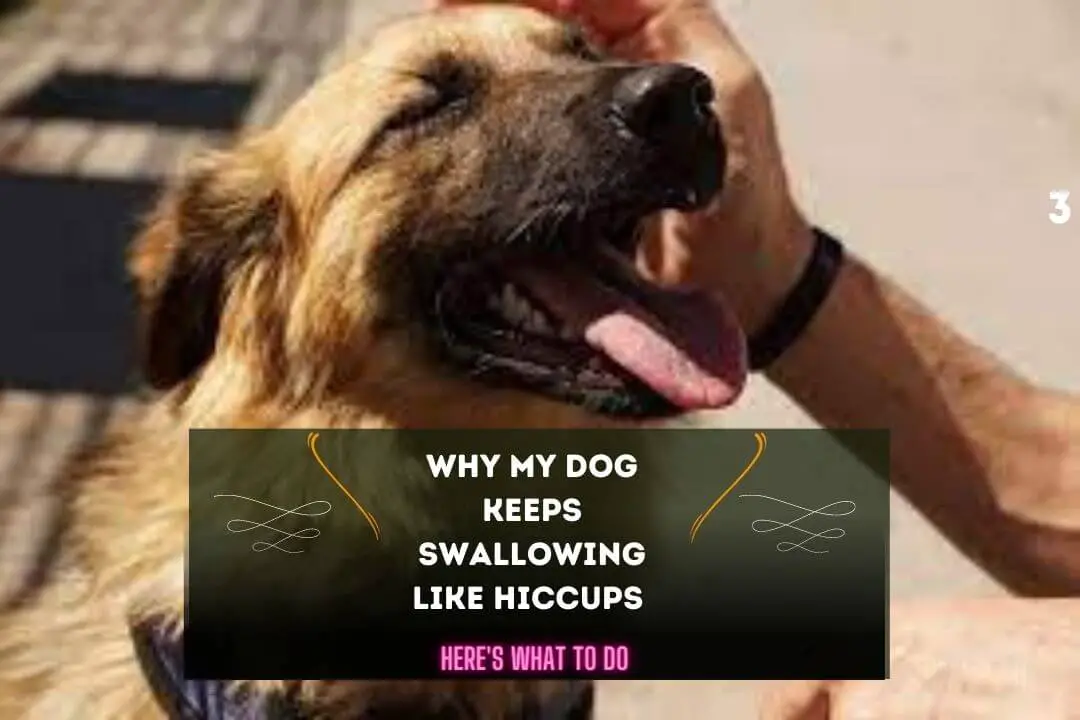
If your dog is swallowing like hiccups, you might be concerned about it. It can leave you puzzled if your dog repeatedly swallows, resembling hiccups. In this article, I will help you dive into all the reasons behind this behavior and explore other possible causes associated with medical conditions, treatment options, preventive measures, and more.
If you are concerned about your dog swallowing like hiccups, read this article thoroughly. Before I tell you what you should be doing to prevent this from happening again, let’s take a quick look at five possible reasons why my dog keeps swallowing like hiccups.
5 Possible Reasons Why My Dog Keeps Swallowing Like Hiccups
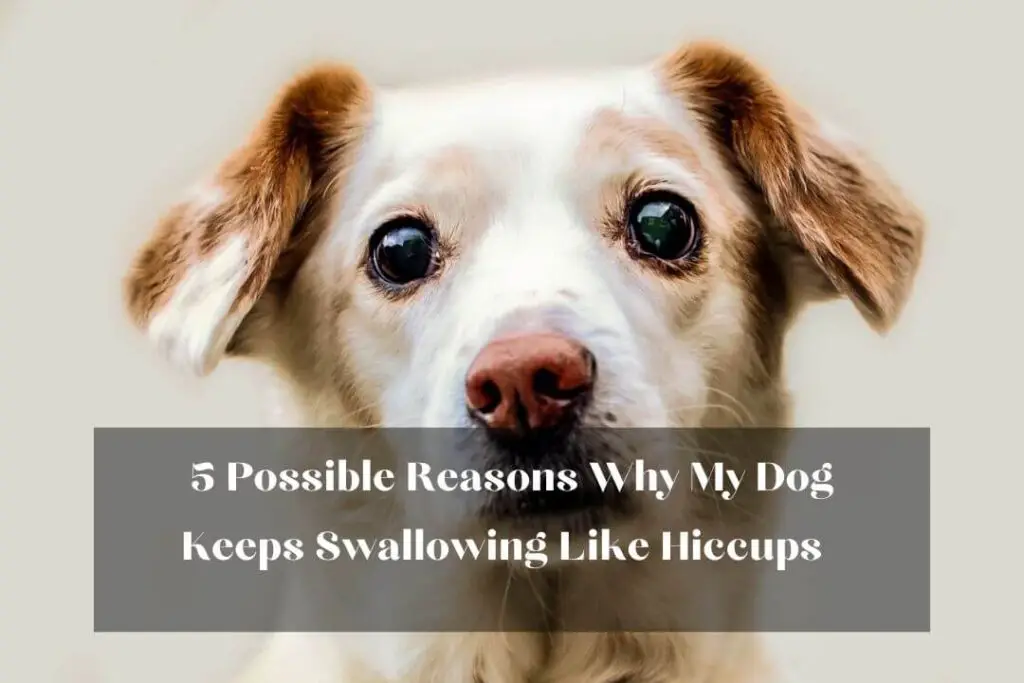
Gastrointestinal Issues
If your dog is swallowing repetitively, it might be due to Gastrointestinal problems. Acid reflux, for instance, occurs when stomach acid flows backward into the esophagus, causing discomfort and triggering repetitive swallowing motions.
Esophagitis, inflammation of the esophagus, can also result in repetitive swallowing as a response to irritation. If you think your dog is suffering from gastric discomfort, you should consider getting it diagnosed at the nearest vet clinic.
You should know that dogs suffering from gastric discomfort may exhibit repetitive swallowing as they try to alleviate their digestive issues.
Oral and Dental Problems
Aside from gastric discomfort, your dog may also exhibit a swallowing pattern due to Oral and dental conditions. Dental diseases, like periodontal disease or tooth decay, can cause pain and discomfort, leading to repetitive swallowing in dogs. According to National Institutes of Health, PD consistently ranks among the top two or three disorders affecting pet dogs
In addition, if your dog has any foreign object in its mouth, like splinters or a small toy, it might be the reason for triggering repetitive swallowing as your furry friend attempts to clear its mouth from these irritants.
You must check your dog’sdog’s mouth to see if anything is stuck. In addition, you should keep small objects with small parts away from your dog’sdog’s reach as they can get lodged in your dog’sdog’s digestive system, causing more severe problems.
Respiratory Issues
In addition to dental problems, Respiratory problems can also contribute to repetitive swallowing behaviors in dogs. Respiratory problems can also happen if you Dog Swallowed Skunk Spray. Maybe your dog is suffering from postnasal drip, a condition where excess mucus drips down the throat, which can prompt repetitive swallowing as your dog try to alleviate the discomfort.
Like this, Your dog might be solving repeatedly as a coping mechanism due to upper respiratory infections that can cause inflammation and congestion.
Anxiety and Stress-related Factors
Apart from health issues, anxiety, and stress-related factors can easily manifest in your dog through various behavior, including repetitive swallowing. If your dog is highly nervous or suffering from heightened anxiety levels, It might trigger it to exhibit this behavior.
You should know that dogs separated from their owner may suffer from Separation anxiety, a common issue many dogs face, contributing to repetitive swallowing when they experience distress.
Additionally, Suppose your dog is very fearful or has any kind of phobia like thunderstorm phobia or fear of fireworks. In that case, it also induces repetitive swallowing as a response to stress and fear-inducing stimuli. This can also lead your Dog Swallowed Collagen Stick.
If you think this is the cost, address the underlying anxiety or stressors As soon as possible to help your dog alleviate repetitive swallowing behaviors in these cases.
Ingestion of Irritants or Toxins
Sometimes, your dogs may also exhibit repetitive swallowing due to ingesting irritants or toxins. If you think your dog has consumed any Substance that might have irritated its throat or gastrointestinal tract, it is likely to trigger a reflexive swallowing response.
It’s crucial that you identify and address any potential culprits, such as household chemicals, plants toxic to dogs, or certain medications that your dog might have ingested accidentally.
4 Medical Conditions Associated with Repetitive Swallowing
Apart from the above reasons, your dog may also do repetitive swallowing as a symptom of other medical conditions that require attention, Medical intervention, and proper management. Below I am mentioning some of the potential medical conditions that are associated with this kind of behavior very often:
Megaesophagus
Maybe your dog is suffering from Megaesophagus, a condition characterized by the dilation and reduced motility of the esophagus, leading to difficulties in swallowing and regurgitation.
Dogs with megaesophagus Are more likely to exhibit repetitive swallowing as they struggle with moving food from the mouth to the stomach. If you think this is the case, you must get your dog to the nearest animal emergency hospital because this type of condition often requires a comprehensive veterinary evaluation and specialized treatment approaches.
Gastrointestinal Obstructions
Maybe your dog has accidentally ingested foreign objects like a whole bone or a toy which might have blocked its gastrointestinal tract leading to significant discomfort. To cope with this discount, your dog may exhibit repetitive swallowing as they try to clear up the obstruction.
You should know that gastrointestinal obstruction can impede the normal flow of food and fluids. If this is the case, you must call your vet immediately and seek medical intervention immediately.
It is important that you address this potentially serious condition as soon as possible because it is considered life-threatening if not treated at the early stage or promptly.
Canine Brachycephalic Airway Syndrome
If you have a Brachycephalic breed like Bulldog or Pug, You should know that they are prone to a condition known as brachycephalic airway syndrome. Unfortunately, this syndrome encompasses various anatomical abnormalities that can obstruct the airway and impact swallowing.
If your dog happens to be one such breed or suffering from this condition, no doubt it will also exhibit repetitive swallowing due to respiratory difficulties. This is the kiss; you must closely monitor your dog / brachycephalic breed and seek veterinary guidance for proper management.
When to Seek Veterinary Care
Even though occasional swallowing is normal, If this behavior becomes persistent or repetitive, it will require veterinary attention or medical intervention. Therefore, you must monitor your dog’sdog’s overall well-being and watch out for signs of underlying health issues. Some of the signs that indicate your dog needs veterinary care or medical attention include the following:
- Frequent or prolonged episodes of repetitive swallowing
- Changes in appetite or weight loss
- Vomiting or regurgitation
- Lethargy or weakness
- Difficulty breathing or increased respiratory effort
- Signs of pain or discomfort
Note: If you observe any of these symptoms or have concerns about your dog’sdog’s repetitive swallowing, it’sit’s crucial to consult a veterinarian for a thorough evaluation.
3 Treatment Options for Dog’s Repetitive Swallowing
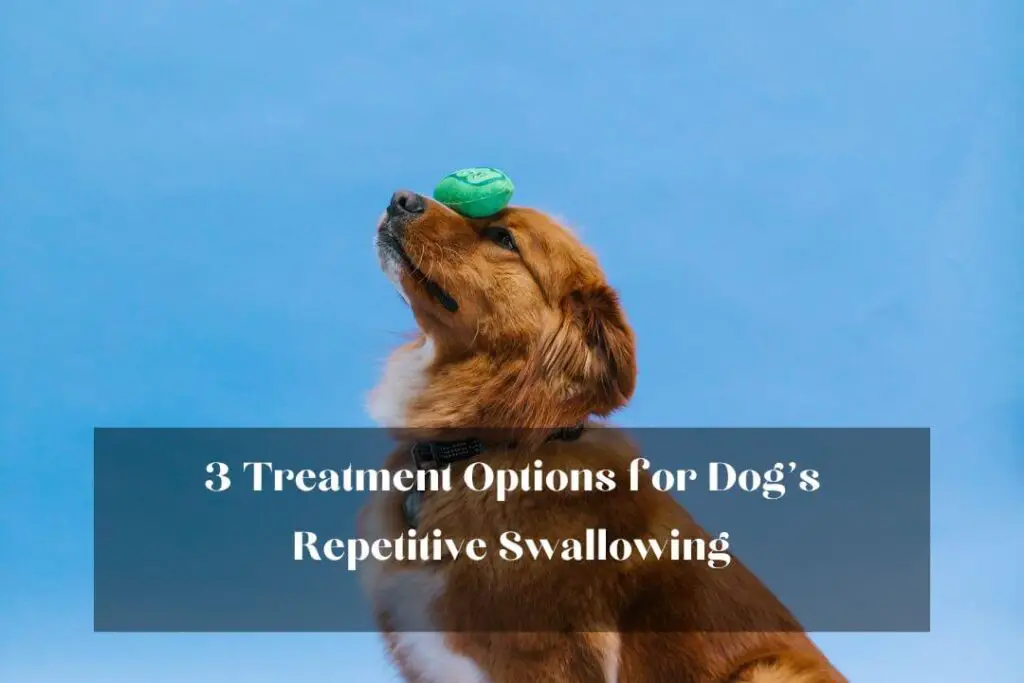
Depending upon the underlying cause, the treatment of repetitive swallowing in dogs will vary. If you know what is causing your dog to swallow like hiccups, you will be better equipped for the best course of action to treat the behavior and prevent this from recurring.
Addressing Underlying Medical Conditions
If you think your dog is swallowing like hiccups due to any certain medical condition, your vet will recommend appropriate treatment measures depending upon the severity. Let’s take a quick loop at what type of medications, dietary changes, and medical interventions will be required to treat any underlying health condition leading to this unwanted behavior / repetitive swallowing-like hiccups.
Medications
Your veterinarian may prescribe you some specific medication to manage symptoms, like reducing information or treating any underlying health issue. For example, if your dog suffers from Acid reflux, your veterinarian may recommend or prescribe medications that can reduce stomach acid production.
Surgical Interventions
In some cases, your veterinarian also Recommends surgery. This is likely to happen in case of structural abnormalities or obstruction in their digestive tract. If your dog has swallowed something lodged in their system, your veterinary May advise surgical intervention. In addition, surgical procedures may also be needed to correct anatomical defects or esophageal-stomach bypass surgery for the megaesophagus.
Dietary Changes
Suppose your dog is suffering from gastrointestinal issues. In that case, Your veterinarian may recommend specific diets that are easier to swallow, digestible, or tailored to address underlying conditions like acid reflux or megaesophagus. Whatever type of medication your dog’sdog’s vet may prescribe, you should always follow their instructions and stick to it.
- Related Topics / Issues
- Is Dawn Dish Soap Safe for Dogs if Swallowed?
- My Dog Swallowed A Rib Bone Without Chewing: 5 Immediate Steps To Take
- Our Dog Swallowed A Bag Of Scrabble Tiles: What To Do
Behavioral Modifications
As I told you earlier, in some cases, anxiety or stress-related factors can also contribute to dogs swallowing, like hiccups. There are many types of strategies or techniques that you can use to reduce anxiety for your dog.
Create a calm environment around your dog and provide them with some positive green enforcement. In some cases, consultation with a professional canine anxiety expert or behaviorist can be a lifesaver or valuable for you and your dog.
Home Remedies and Supportive Care
In addition to Medical intervention or veterinary treatment, there are also certain home remedies and supportive care measures that you can prove to provide your dog with additional relief.
Consider providing an elevated feeding station which will help your dog with digestion. Besides that, you can also administer soothing throat remedies recommended by your vet or create a comfortable environment for your furry friend.
5 Preventive Measures for Repetitive Swallowing
- To maintain good oral hygiene and Dental health, you should establish a proper Dental Care routine for your dog that includes regular brushing, periodic dental examinations, and dental toys or treats to promote oral health.
- It would help to keep your dog engaged in a daily exercise routine depending on its breed, age, and energy level. Also, please provide them with mental tolerance through interactive toys, puzzles, or training exercises to alleviate anxiety and promote a healthy mind.
- Make sure you identify and address potential anxiety or triggers for your dog. Whether it is separation anxiety or loud noise, you must develop strategies to manage and mitigate these triggers.
- You should provide your dog with toys, puzzles, and interactive games to keep them mentally engaged. You can also provide Calming elements like soothing music or pheromone diffusers to ensure your dog has a comfortable resting area to relax.
- It would help if you visited the nearest veterinary clinic with your dog for Occasional testing and diagnosis to identify and eliminate any potential underlying health issue that might Trigger this unwanted behavior.
Conclusion.
After reading this article, I hope you have all the ideas why my dog keeps swallowing like hiccups. Suppose you have any other concerns regarding this. Consider consulting with your veterinarian or taking your dog to the nearest animal emergency Care Hospital for proper diagnosis and treatment.
It would help if you never attempted to do anything that may harm your dog more than good. It’sIt’s best to leave it to the professional because, in most cases, medical interventions are required for this kind of Repetitive behavior.
Check out our other helpful guide on dog swallowing problems and solutions. See you in the next post. Till then, take care & goodbye.

